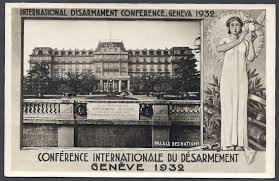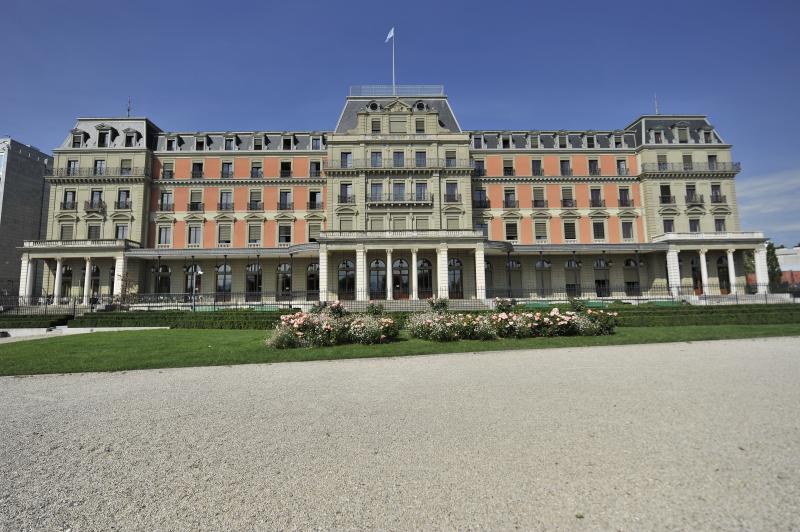
Day 6 (Monday, 6 May 2013)
On Monday, before proceeding with its formal Session, the Members had a "breakfast gathering" to celebrate the entry into force of the Optional Protocol (on 5 May), this at the invitation of Portugal with the Group of Friends of the OP-ICESCR.
The Committee then began its formal meetings and had briefings by NHRI, NGO and UN partners. During the morning part of the meeting, the High Commissioner addressed the Committee on the occasion of the entry into force of the OP-ICESCR, followed by a statement delivered by the Chairperson. The importance of the entry into force of this new instrument was once again highlighted - see press release...
In the afternoon, the Committee began the consideration of the initial report of Togo, which will continue tomorrow (initial reports are considered over three meetings).
Day 7 (Tuesday, 7 May 2013)
On Tuesday, the Committee concluded the review of the initial report of Togo (E/C.12/TGO/1). The high level inter-ministerial delegation was headed by Mrs Leonardina Rita Doris Wilson-de Souza, Minister of Human Rights, Consolidation of Democracy, and Civic Training. The delegation also included the Minister of the Employment and Social Protection, the Minister of Arts and Culture, the Ambassador and Permanent Representative to UNOG, the Attorney General of the Republic, as well as other representatives from the Ministry of Human Rights, Consolidation of Democracy, and Civic Training, the Ministry of Employment and Social Protection, the Ministry of Arts and Culture, the Ministry of Social Action and National Solidarity, the Ministry of Health, the Ministry of Primary, Secondary Education and Alphabetisation, the Ministry of Agriculture, Livestock Production and Fisheries, the Ministry of Economy and Finances, and Togo’s Permanent Mission to UNOG.
The issues discussed during the dialogue between the Committee and the delegation included the following:• The status of the Covenant in the State party’s legal order, the prospect of ratification of the Optional Protocol;
• Legal provisions which are discriminatory against women;
• The impact of measures taken to address harmful practices against women;
• Corruption and insufficient budget allocation to social sectors;
• The impact of mining activities on the environment as well as the respect of mining terms by exploiting companies;
• Situation of persons with disabilities;
• Unemployment and underemployment;
• Conditions of work in the informal economy and in export processing zones;
• Access to justice for victims of violations of work rights;
• Expansion of the coverage of the social security system;
• Child labour and sexual exploitation of children;
• Public health concerns, including high child and maternal mortality
• Poverty;
• Shortage of housing, high percentage of the population living in slums, obstacles to acquisition of housing, lack of security of tenure;
• Limited access to water and sanitation;
• High rates of drop-out, repetition in primary school; the conversion of Ecoles d’Initiative Locale into public schools;
• Ethnic identity and promotion of ethnic languages.Following the conclusion of the dialogue the Committee continued discussion in closed meeting. Issues discussed included working methods, including modalities of adopting the concluding observations, and other matters discussed at the second meeting of the Bureau.
Day 8 (Wednesday, 8 May 2013)
The Committee considered the 2nd to 4th periodic reports submitted by Rwanda. The delegation was headed by H. E. Ambassador Soline Nyirahabimana, Permanent Representative of Rwanda to the United Nations and other international organizations in Geneva. The delegation also included Mr. Gasana, the Deputy Director General, Rwanda Education Board, Ministry of Education (MINEDUC); Mr. Ngirabega, Director General of Clinical Services, Ministry of Health (MINSANTE); and Mr. Rusaganwa, the Principal State Attorney, Ministry of Justice (MINJUST).
The issues discussed during the dialogue between the Committee and the delegation included the following:
• The status of the Covenant in the State party’s legal order and the lack of cases on the direct application of the Covenant by domestic courts and tribunals;
• The prospect of the ratification of the Optional Protocol;
• The lack of full compliance of the National Human Rights Institution with the Paris principles, in particular the lack of independence;
• The application in practice of the anti-discrimination legislation and machinery, in particular for the Batwa; regarding enjoyment of the rights protected by the Covenant;
• Some remaining legal provisions which are discriminatory against women and the practical impact of the gender equality legislation;
• The impact of measures taken to address stereotypes and gender based violence;
• Non-compliance of the legislation on refugees with international standards, including lack of legal protection against refoulement ;
• Non-recognition of the existence of ethnic groups or indigenous peoples;
• Situation of persons with disabilities;
• Unemployment and underemployment;
• High number of persons in the informal sector and their conditions of work;
• Situation of domestic workers;
• Absence of a national minimum wage;
• Sexual harassment in work;
• Expansion of the coverage of the social security system and allowances for maternity leave;
• Land reform and its impact;
• High level of poverty;
• Child labour;
• Access to health care, high child and maternal mortality; and criminalization of abortion;
• Chronic malnourishment of children ;
• Shortage of social housing, access to housing for disadvantaged and marginalized peoples including Batwa;
• Fair compensation of people evicted or expropriated;
• Situation of street children and orphans; corporal punishment;
• High rates of drop-out;
• Ethnic identity and promotion of cultural diversity;
• Promotion of tolerance and understanding among different groups.Following the conclusion of the dialogue the Committee continued discussion in closed meeting. On Friday, 10 May, the Committee will consider the fifth periodic report of Denmark.
Day 9 (Friday, 10 May 2013)
During its 17th and 18th meetings on Friday 10 May 2013, the Committee on Economic, Social and Cultural Rights considered the fifth periodic report of Denmark (E/C.12/DNK/5). The 14 member delegation was headed by H.E. Mr. Wolffhechel, Human Rights Ambassador and Head of the Human Rights Department at the Ministry of Foreign Affairs. After the opening statement by the head of delegation, the Committee held an interactive dialogue, focusing on the following issues:
• Incorporation of the Covenant into domestic legislation, and application of international human rights treaties by courts or parties to a case;
• Reservation to art 7 of Covenant regarding remuneration for public holidays;
• The exclusion of the Faroe Islands in the mandate of the Danish Human Rights Institute;
• The absence of a comprehensive anti-discrimination legislation;
• The persistent wage gap between women and men, and the under representation of women in high-ranking posts, especially in academia and the private sector;
• Difficulties faced by women from minority groups in realizing and accessing Covenant rights, in particular regarding education, employment and health care;
• The under representation of persons with disabilities in the labour market;
• The absence of a national minimum wage;
• The level of the basic social assistance allowance paid to persons under 25 years of age;
• The absence of an explicit prohibition of corporal punishment of children in the home and in other care settings in Greenland;
• The significant number of children placed in care outside of their home, including in institutional care;
• The increased risk of poverty for certain population groups, in particular single parent families, families living on State welfare as well as immigrant families;
• Obstacles faced by migrant workers and other disadvantaged and marginalized groups, including the Roma people, in realizing their right to adequate housing;
• The shortage of social housing, including in the Faroe Islands;
• The persistence of homelessness, particularly among the immigrant population;
• Obstacles to accessing health care facilities, goods and services faced by quota refugees, migrants reunified with their family, and undocumented migrants;
• The education of asylum-seeking children in separate schools;
• Performance of children with disabilities in final secondary school exams compared with children without disabilities;
• Non-recognition by the State party of the Thule Tribe of Greenland (the Inughuit) as a distinct indigenous community.Next week, on Monday, the Committee will begin its deliberations on the concluding observations of the State party reports considered during its current session.









.jpg)






